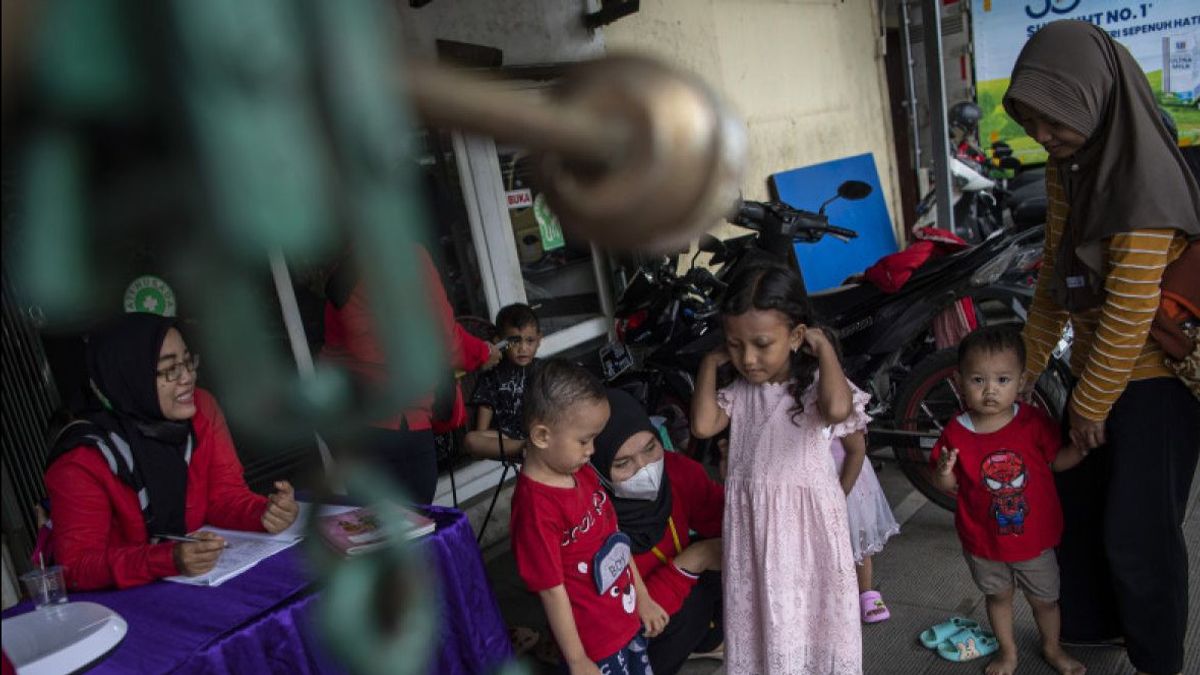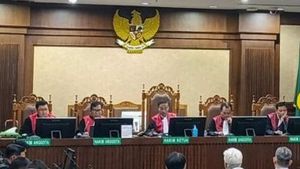JAKARTA - The National Population and Family Planning Agency (BKKBN) stated that Indonesia has the potential to achieve a wider Indonesia vision in 2045. This is if Indonesia is able to achieve the stunting target at the level of 14 percent by 2024.
Head of BKKBN Hasto Wardoyo said the 2045 vision was Indonesia's target to become a high-income country so that it was able to enter as the top five countries with world economic powers.
"The natural resources (SDA) are not renewable, Kalimantan including natural resources are abundant but human resources (HR) are also not renewable. So if the natural resources run out but the human beings don't progress, dear. One of the indicators is stunting," he said, quoting Antara.
Indonesia's 2045 vision is Indonesia's target to have superior human resources (HR), cultured and master science and technology (science and technology) as well as an advanced and sustainable economy.
In addition, Indonesia also has a target in equitable and inclusive development and becomes a democratic, creative and clean country.
Hasto said that in the range of 2020 to 2045 as many as 70 percent of Indonesia's population at a productive age, namely between 15 and 64 years old.
In detail, 44.19 women and 41.49 million men aged zero to 19 years, 32.97 million women and 34.67 million men aged 15-29 years, 93.93 million women and 95.71 million men aged 15-64 years.
He emphasized that the target of reducing stunting to the level of 14 percent is a very serious government plan in order to take advantage of the demographic bonus owned by Indonesia.
This is in accordance with the target of sustainable development goals (SDGs) 2030, namely eliminating hunger and reducing the risk of malnutrition and reducing the neonatal death rate.
One indicator of the performance of regional heads, the bureaucratic reform index is the thematic of stunting. The 14 percent target is serious because there is no second chance to get a demographic bonus," he said.
Hasto said that although demographic bonuses can occur twice like in Japan, Indonesia only comes once so it must be used as well as possible.
According to him, Indonesia cannot have a second demographic bonus because it is difficult for parents in the country to be productive, the majority have low education and have low income.
SEE ALSO:
He reminded that if Indonesia is unable to create good quality for demographic bonuses, Indonesia's opportunity to achieve Vision 2045 will be more difficult.
"Utilizing demographic bonuses is only expected from this young one. But what about the young ones stunting," he said.
He added that President Joko Widodo had also set an example, namely countries in Africa that passed their demographic bonuses and were trapped in medium income conditions or middle income traps.
Therefore, Hasto advised that improving the quality of human resources should also be a priority for local governments in order to optimize the existing natural resources abundance.
"The countries in Africa are forever poor. Don't let that happen," he said.
The English, Chinese, Japanese, Arabic, and French versions are automatically generated by the AI. So there may still be inaccuracies in translating, please always see Indonesian as our main language. (system supported by DigitalSiber.id)
















